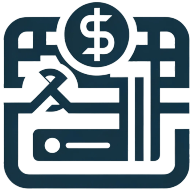4 Advice for Ensuring Payroll Compliance With Relevant Legislation
Navigating the complexities of payroll compliance requires more than just good intentions; it demands a thorough understanding and strategic action. This article provides critical strategies and insights from top industry experts to help businesses maintain compliance with evolving payroll legislation. Learn the importance of leveraging technology and staying proactive in adapting to new labor laws and regulations.
- Study Legislation and Use Payroll Software
- Invest in Reliable Payroll Software
- Stay Proactive About Labor Laws
- Stay Updated on Payroll Regulations
Study Legislation and Use Payroll Software
Study local, state, and federal legislation to avoid payroll law violations. I recommend trustworthy payroll software that automates tax computations, deductions, and filing. To continue learning, attend webinars or subscribe to Department of Labor newsletters.
I propose a comprehensive payroll checklist. This assures accuracy when categorizing personnel (exempt vs. non-exempt), computing overtime, and fulfilling tax deadlines. For essential needs, I recommend the IRS Employer's Tax Guide (Publication 15). Organization and communication reduce risks and streamline payroll management.

Invest in Reliable Payroll Software
If you're new to handling payroll, my biggest advice is to invest in reliable payroll software. The right system can automate complex tasks like tax calculations, compliance reporting, and tracking filing deadlines. This not only reduces the risk of errors but also keeps you aligned with ever-changing regulations.
It's also crucial to stay informed about payroll laws. Make it a habit to attend webinars, complete training sessions, and follow trustworthy sources like government websites or professional payroll organizations. For example, subscribing to updates from your local tax authority can keep you ahead of changes in tax rates or employment laws.
Lastly, don't be afraid to reach out for help. Experienced accountants or payroll consultants can offer guidance and help you navigate tricky situations. By combining smart tools, continuous learning, and expert support, you'll set yourself up for success with a system that's both accurate and compliant.

Stay Proactive About Labor Laws
One key piece of advice for someone new to handling payroll is to stay proactive about understanding both federal and state labor laws to ensure compliance. This includes being familiar with tax withholding regulations, overtime rules, and employee classification standards. When I first started managing payroll for my team at Ponce Tree Services, I quickly realized that mistakes in payroll can have serious consequences, from fines to employee dissatisfaction. To avoid issues, I invested in payroll software that helps calculate taxes accurately and sends reminders for important deadlines. Additionally, I made it a habit to consult a local employment attorney for periodic audits of my payroll process. This combination of technology and expert input has been a game-changer, ensuring accuracy and compliance for my business.
A specific example that stands out involves how I handled the switch from 1099 contractors to W-2 employees as my company grew. It required a deep understanding of payroll taxes, employee benefits, and wage laws, which I initially found overwhelming. By leaning on my TRAQ certified arborist training, which taught me the importance of attention to detail and precision, I was able to approach payroll management systematically. I utilized resources like the IRS website and online state tax portals to ensure I was following the proper steps. The result? A smooth transition with no penalties, while earning my employees' trust by ensuring they were paid accurately and on time. This experience reinforced the importance of staying informed and utilizing the right tools and expertise to keep payroll compliance on track.

Stay Updated on Payroll Regulations
One piece of advice I'd give to someone new to handling payroll is to stay on top of relevant legislation and ensure your systems are updated to reflect any changes. Payroll regulations, including tax rates, retirement plan requirements, and award conditions, can change frequently, and non-compliance can lead to significant fines and loss of trust within your team. A key practice is to invest in reliable payroll software that automatically updates to meet legal requirements. Additionally, taking time to understand the Fair Work Act and engaging with a qualified accountant or payroll specialist for advice can help ensure your business remains compliant and your employees are paid correctly.
For example, when I transitioned The Alignment Studio into a multidisciplinary clinic, our team grew significantly, and with that came the need for precise payroll management. My background in business and years of managing staff taught me the importance of thorough planning and regular compliance reviews. I implemented payroll software that streamlined retirement plan contributions and ensured all staff, from physical therapists to Pilates instructors, were correctly paid under their specific awards. I also sought expert advice to confirm that everything aligned with legislative changes. By doing this, we avoided any compliance issues and created a strong foundation of trust with our team, which is critical for maintaining a positive workplace culture.


